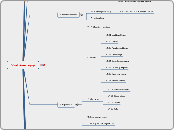Python Reference Language
* 1.1 Alternate Implementations
* 1.2 Notation
Go Geometry
* 2.1 Line structure
o 2.1.1 Logical lines
o 2.1.2 Physical lines
o 2.1.3 Comments
o 2.1.4 Encoding declarations
o 2.1.5 Explicit line joining
o 2.1.6 Implicit line joining
o 2.1.7 Blank lines
o 2.1.8 Indentation
o 2.1.9 Whitespace between tokens
* 2.2 Other tokens
* 2.3 Identifiers and keywords
o 2.3.1 Keywords
o 2.3.2 Reserved classes of identifiers
* 2.4 Literals
o 2.4.1 String literals
o 2.4.2 String literal concatenation
o 2.4.3 Numeric literals
o 2.4.4 Integer and long integer literals
o 2.4.5 Floating point literals
o 2.4.6 Imaginary literals
* 2.5 Operators
* 2.6 Delimiters
* 3.1 Objects, values and types
* 3.2 The standard type hierarchy
* 3.3 New-style and classic classes
* 3.4 Special method names
o 3.4.1 Basic customization
o 3.4.2 Customizing attribute access
o 3.4.3 Customizing class creation
o 3.4.4 Emulating callable objects
o 3.4.5 Emulating container types
o 3.4.6 Additional methods for emulation of sequence types
o 3.4.7 Emulating numeric types
o 3.4.8 Coercion rules
o 3.4.9 With Statement Context Managers
* 4.1 Naming and binding
o 4.1.1 Interaction with dynamic features
* 4.2 Exceptions
* 5.1 Arithmetic conversions
* 5.2 Atoms
o 5.2.1 Identifiers (Names)
o 5.2.2 Literals
o 5.2.3 Parenthesized forms
o 5.2.4 List displays
o 5.2.5 Generator expressions
o 5.2.6 Dictionary displays
o 5.2.7 String conversions
o 5.2.8 Yield expressions
* 5.3 Primaries
o 5.3.1 Attribute references
o 5.3.2 Subscriptions
o 5.3.3 Slicings
o 5.3.4 Calls
* 5.4 The power operator
* 5.5 Unary arithmetic operations
* 5.6 Binary arithmetic operations
* 5.7 Shifting operations
* 5.8 Binary bit-wise operations
* 5.9 Comparisons
* 5.10 Boolean operations
* 5.11 Lambdas
* 5.12 Expression lists
* 5.13 Evaluation order
* 5.14 Summary
* 6.1 Expression statements
* 6.2 Assert statements
* 6.3 Assignment statements
o 6.3.1 Augmented assignment statements
* 6.4 The pass statement
* 6.5 The del statement
* 6.6 The print statement
* 6.7 The return statement
* 6.8 The yield statement
* 6.9 The raise statement
* 6.10 The break statement
* 6.11 The continue statement
* 6.12 The import statement
o 6.12.1 Future statements
* 6.13 The global statement
* 6.14 The exec statement
* 7.1 The if statement
* 7.2 The while statement
* 7.3 The for statement
* 7.4 The try statement
* 7.5 The with statement
* 7.6 Function definitions
* 7.7 Class definitions
* 8.1 Complete Python programs
* 8.2 File input
* 8.3 Interactive input
* 8.4 Expression input
